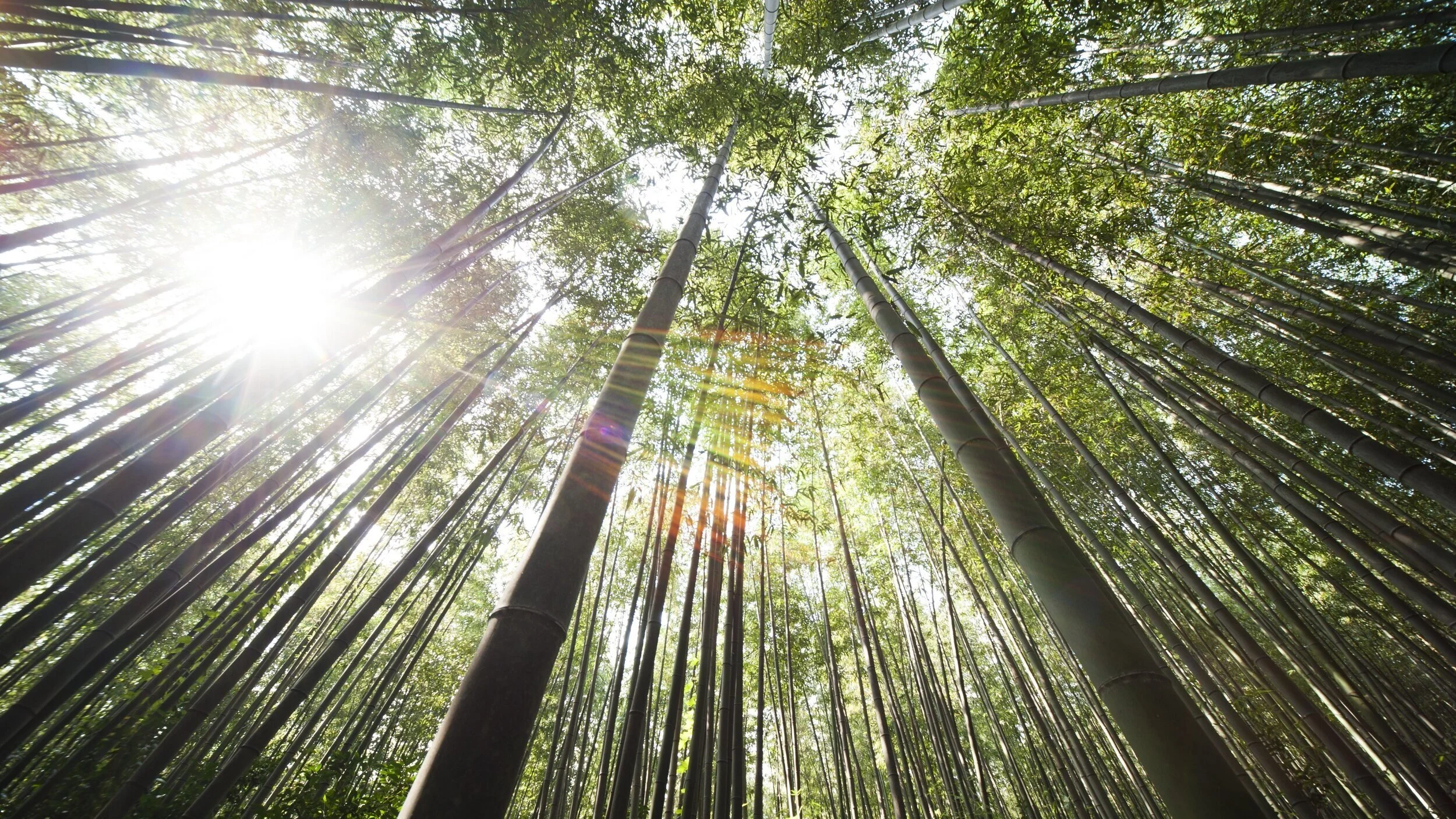How Deforestation Impacts Air Quality and 5 Ways to Make a Difference Today
This guest post was written by Cloud Paper, which creates paper products made with soft and sustainable bamboo — no trees harmed along the way. Cloud Paper is on a mission to end deforestation caused by traditional paper products. Use code ALOMOVES for 15% off your first order.
Breath is the foundation of any yoga or mindfulness practice. We harness the power of respiration to reduce stress and boost mental and physical performance. But what happens when the air we breathe is harmful to our health? The World Health Organization estimates that 91% of humans live where air quality levels are lower than recommended limits. And global deforestation is a major driver of rising air pollution.
Let’s take a look at the problem with deforestation, how it contributes to air pollution, and what we can all do to breathe better today.
Forest Fact Sheet
Forests cover over 30% of the world’s landmass. They’re home to 80% of the world’s biodiversity — a vast network of plants, animals, fungi, and microscopic organisms.
Scientists divide forests into three primary categories:
Tropical forests comprise 40% of total forest cover and are found near the equator
Temperate forests make up 25% of total forest cover and span North America, northeastern Asia, and parts of central and western Europe
Boreal forests lie just below the Arctic Circle and account for 31% of total forest cover
Healthy, intact forest systems can support up to 2,000 species per square mile!
But it’s not just plants and animals who benefit from forests. Indigenous communities have long inhabited forested areas around the world. They rely on their abundance to provide food, medicine, shelter, and income. Indigenous forest management practices result in healthier forests with fewer devastating diseases and wildfires. And everyone relies on intact, healthy forests to clean the air we breathe.
How Forests Affect Earth’s Atmosphere
Our atmosphere is a blend of gases — mostly nitrogen, a little oxygen, and micro-amounts of greenhouse gases like carbon dioxide. Greenhouse gases absorb the sun’s rays and keep temperatures stable. Without them, we’d have sauna-like temps by day and frozen tundra temps by night. In these minuscule amounts, greenhouse gases are a good thing.
Forests help keep this process in balance. Through sequestration, trees capture and store carbon dioxide. Using light, water, and carbon dioxide, each tree produces energy in the form of sugar and releases oxygen into the air. During the day, trees also release water vapor along with oxygen, and atmospheric weather cycles move the clean air around the planet.
Forests are carbon sinks, which means they store more carbon dioxide than they release — twice as much, in fact. Each acre of forest sequesters two tons of carbon dioxide a year. That’s equal to two cars’ worth of yearly emissions.
When this process is in balance, global temperatures are regulated, and air pollution is minimized. But years of massive deforestation have tipped the balance toward unsustainable levels of greenhouse gas emissions.
Deforestation and Air Pollution
Deforestation involves the removal of large stands of trees for human use. Agriculture, raising livestock, mining, and drilling account for half of world forest loss. Other causes are urbanization, forest fires, and forestry practices like building roads.
Deforestation strips the planet of 18.7 million acres of forest a year, according to the World Wildlife Fund. That’s equal to about 14 average-sized city parks every minute.
When vast areas of trees are stripped, stored carbon dioxide is released into the atmosphere, and those trees lose their carbon sequestration abilities. Worldwide, deforestation contributes to 15% of total greenhouse gas emissions.
Deforestation also increases the risk of forest fires. Clearcut areas of forest reduce humidity levels and lead to unstable ecosystems. Wildfire spreads faster and burns hotter, releasing more toxic pollutants into the air.
Every year, blazing forest fires release 8 billion tons of carbon dioxide. In 2015, Indonesia surpassed Canada and the United States in greenhouse gas emissions. The cause? Deforestation to make way for palm oil plantations.
Continued forest loss and increasing wildfires act in a feedback loop, emitting greenhouse gases and increasing air pollution around the world. Breath, the foundation of human life, is compromised.
The good news is there are simple actions anyone can take to combat deforestation and improve the quality of the air we breathe.
How to Take Action to Improve Air Quality and End Deforestation
Support Indigenous rights to forest management by donating to organizations that work with Indigenous communities:
Support tree-planting efforts, and plant trees on your own property. One Tree Planted is an organization working in areas highly impacted by deforestation.
Reduce or eliminate meat consumption. Amazon rainforests are being cleared at rapid rates for cattle grazing. Consider a plant-based diet, and encourage others to do the same.
Avoid products made with palm oil, or look for the Roundtable on Sustainable Palm Oil (RSPO) certification. Tip: palm oil is most often found in processed foods like crackers, cookies, and other snacks. Always check the labels on these foods.
Choose bamboo paper products like Cloud Paper’s paper towels and toilet paper — bamboo is a fast-growing sustainable alternative that absorbs massive amounts of carbon. In fact, it’s the fastest growing plant in the world and takes carbon out of the air quicker than almost any other plant.
These small actions can make a big difference. For better breathing and health, help us end deforestation today.
Check out how Alo Moves is celebrating Earth Month and what you can do to help. To learn more about Cloud Paper, visit their website and use code ALOMOVES for 15% off your first order.


